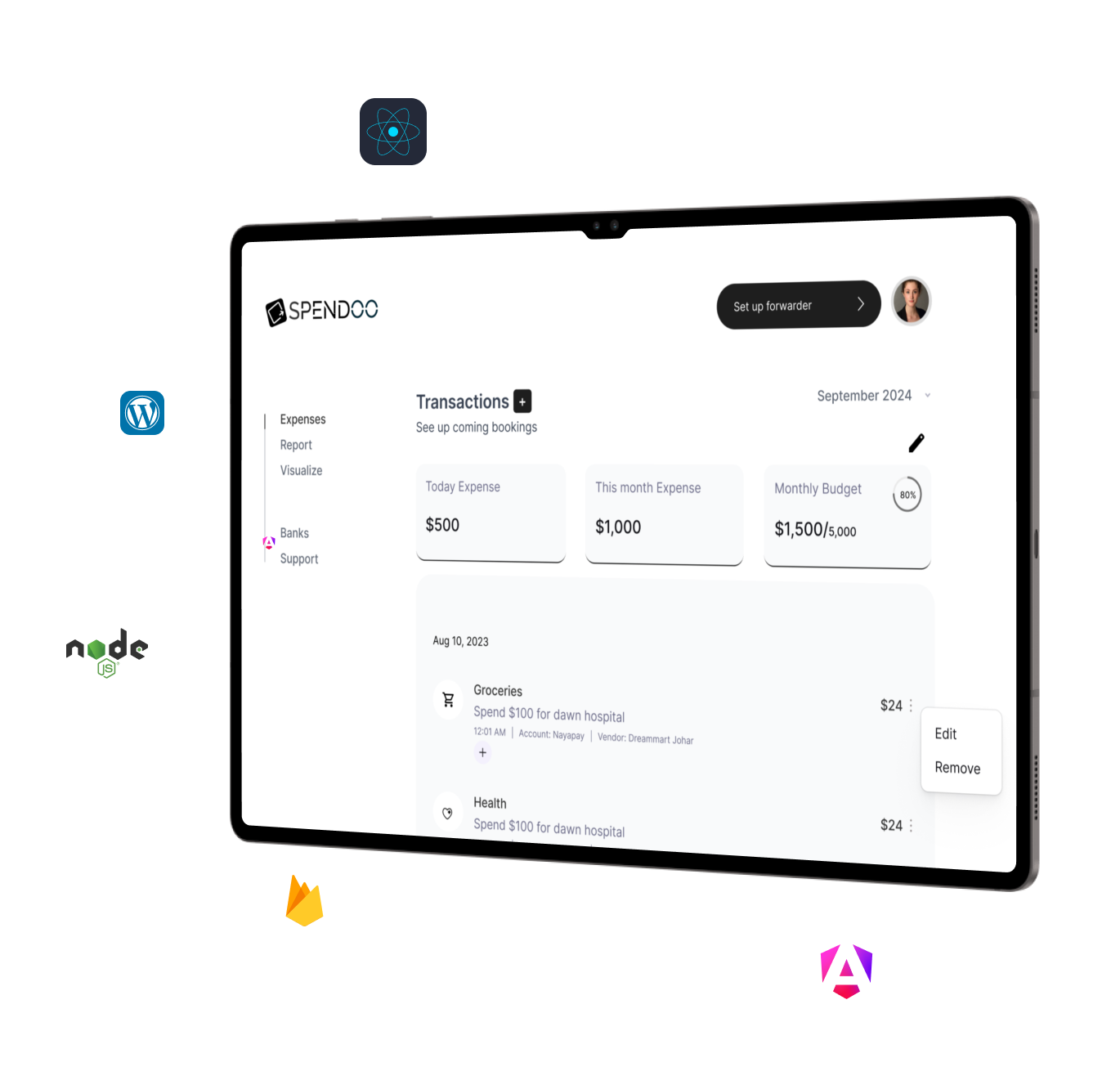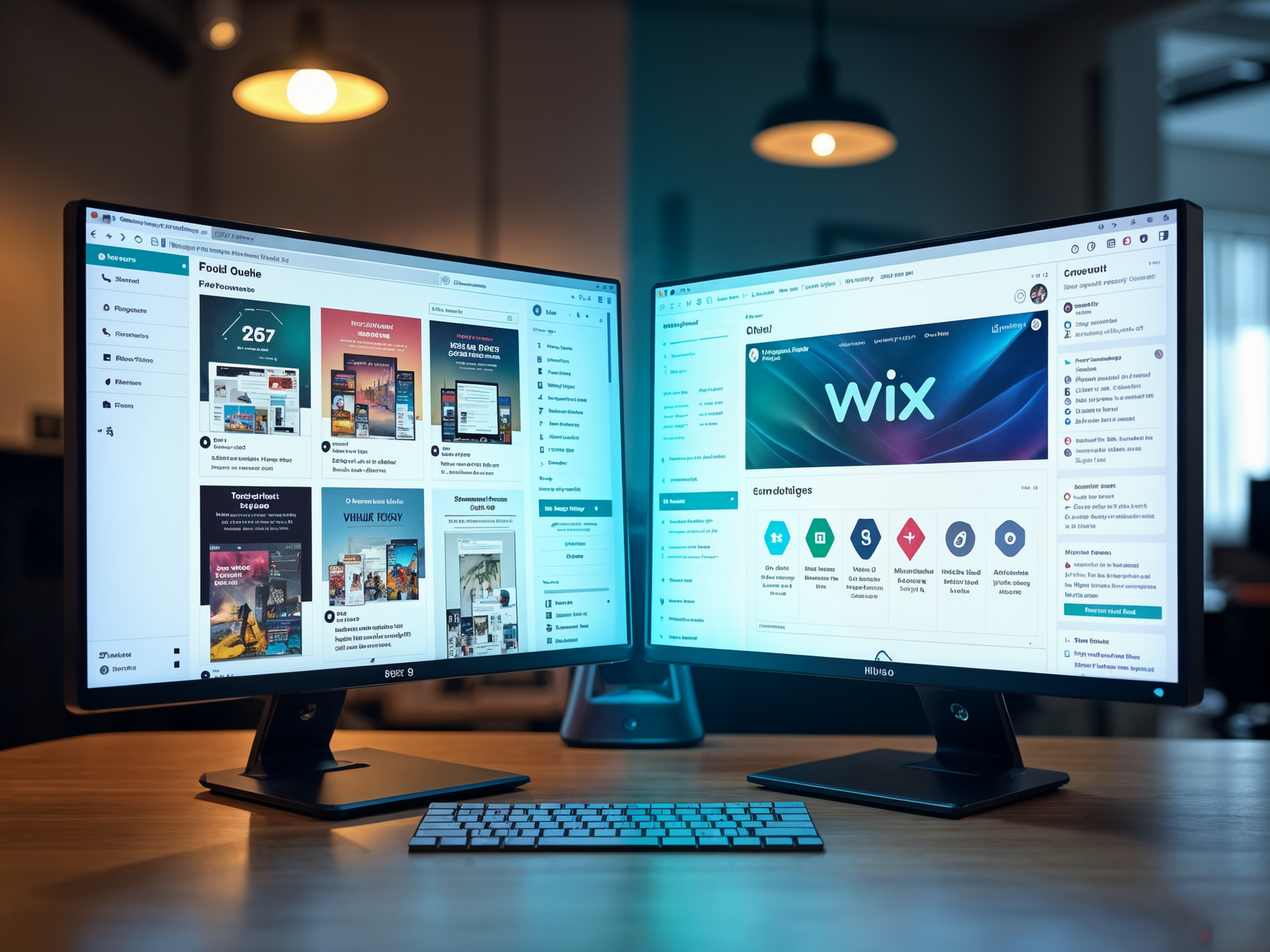Introduction: The Importance of Choosing the Right Landing Page Platform
Creating a landing page is essential for business success in today’s digital world. Canva and Wix are two popular platforms for designing these pages, each with unique features. Canva is known for its simplicity and speed, making it great for quick, visually appealing designs. Wix, on the other hand, offers extensive customization options, perfect for users who want more control over their landing page’s functionality. When choosing a platform, consider factors like ease of use, design flexibility, and your landing page’s specific goals. A well-designed landing page can boost user engagement and conversion rates, making the choice of platform crucial for businesses.
Canva: A Versatile Design Tool for Landing Pages
Canva is a versatile tool with a user-friendly interface and a vast template library, making it an excellent choice for beginners. Its drag-and-drop editor allows users to create visually appealing landing pages quickly, without needing extensive design skills. Canva’s key features include a wide array of templates and design elements, enabling users to produce professional-looking pages swiftly. However, Canva’s simplicity can also be a limitation, as it lacks the advanced customization options found in more comprehensive platforms like Wix. Despite this, Canva remains a strong contender for those prioritizing ease of use and speed in their design process. For more insights, check out this comparison of Canva and Wix.
Wix: A Comprehensive Website Builder with Landing Page Functionality
Wix is a comprehensive website builder with robust landing page capabilities. It offers a user-friendly drag-and-drop interface, similar to Canva, but with more advanced features. Wix’s key capabilities include extensive customization options, SEO tools, and e-commerce integration, making it suitable for users who need more than just a basic landing page. The platform’s advantages include its flexibility and range of features, which allow for highly personalized and functional designs. However, this complexity can also be a drawback for users seeking a simpler solution. For a detailed comparison, visit Wix’s blog on landing page builders.
Design Capabilities: Canva vs. Wix
When it comes to design capabilities, both Canva and Wix offer unique strengths. Canva excels in providing a wide range of templates that are easy to customize, making it ideal for quick projects. Its intuitive interface ensures a low learning curve, allowing users to create professional designs without prior experience. On the other hand, Wix offers greater design flexibility and creative control, with advanced customization options that cater to more complex needs. Both platforms ensure mobile responsiveness, but Wix’s adaptability is particularly noteworthy for users requiring detailed design adjustments. For more on their design capabilities, see this comparison of Canva and Wix.
Functionality and Integration: How Canva and Wix Stack Up
In terms of functionality and integration, Wix offers more comprehensive features compared to Canva. Wix provides form-building capabilities, lead capture tools, and seamless integration with third-party services, making it ideal for businesses looking to expand their online presence. Its e-commerce functionality is particularly beneficial for product landing pages, offering tools like analytics and tracking features to optimize performance. Canva, while simpler, still offers basic integration options and is suitable for straightforward design tasks. For a deeper dive into their functionalities, explore this detailed comparison.
SEO and Performance: Optimizing Your Landing Page for Success
SEO and performance are critical factors in landing page success. Wix offers built-in SEO tools, allowing users to optimize their pages for search engines effectively. It also provides customization options for meta tags and URLs, enhancing page visibility. Canva, while not as robust in SEO capabilities, still offers basic tools to ensure your landing page performs well. Both platforms emphasize mobile optimization, crucial for maintaining SEO rankings. For more on optimizing landing pages, check out this guide on creating a Wix landing page.
Pricing and Value: Comparing Canva and Wix Plans
Pricing is a significant consideration when choosing between Canva and Wix. Canva offers a free plan with basic features, while its paid plans unlock more advanced design tools. Wix also provides a free plan, but its premium plans offer greater flexibility and advanced features, essential for businesses looking to scale. When evaluating cost-effectiveness, consider the specific needs of your business and the additional costs, such as domain names and premium features. For a comprehensive overview of pricing, visit Wix’s pricing page.
Use Cases: When to Choose Canva or Wix for Your Landing Page
Choosing between Canva and Wix depends on your specific needs and industry. Canva excels in scenarios where speed and simplicity are paramount, making it ideal for small businesses or individuals with limited resources. In contrast, Wix is better suited for users who require more control and advanced features, such as e-commerce integration and SEO tools. Consider the nature of your business and the goals of your landing page when making a decision. For examples of successful landing pages, explore this comparison of landing page builders.
Conclusion: Making the Right Choice for Your Landing Page Needs
In conclusion, both Canva and Wix offer valuable tools for creating effective landing pages, each with its strengths and limitations. Canva is perfect for those seeking simplicity and speed, while Wix provides a more comprehensive solution for users needing advanced features and customization. When deciding, consider your specific needs, budget, and the level of control you require. Ultimately, trying both platforms can help you determine which best suits your landing page needs. For further reading, visit this guide on landing page builders.







